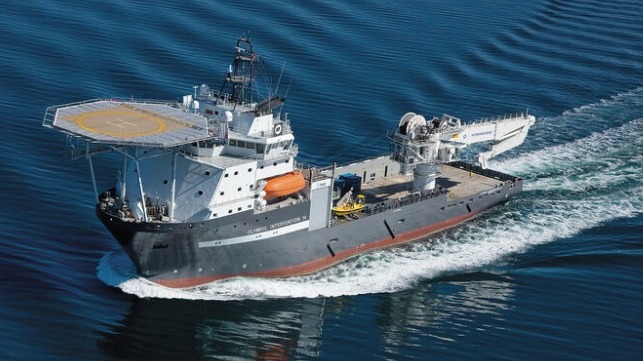U.S. Sanctions Russian Vessel in Connection With Nord Stream 2

The Biden administration has added the Russian-flagged offshore construction vessel Marlin to its list of ships sanctioned for assisting the already-completed Nord Stream 2 project, a Russian gas pipeline to Europe that was blacklisted by the U.S. Congress in 2020. Like the administration's previous sanctions measures, it omits European assets and is not expected to have an effect.
Marlin (ex name Olympic Intervention IV) has just completed a deployment along the new pipeline and has returned to St. Petersburg, out of U.S. and allied jurisdiction. The timing of the listing and the flag state of the vessel ensure that as a practical matter, the penalty is unenforceable, according to Western analysts.
A U.S. official told Reuters that Treasury has identified a German-controlled vessel that is engaged in similar violations, the Blue Ship. However, the agency will take no action against this reachable target, following the State Department's policy of leniency towards European participants in Nord Stream 2.
Though the sanctions on Marlin will have no material effect, the Kremlin voiced its objections to symbolic enforcement measures targeting a Russian ship.
"This is something we view extremely negatively. We consider that illegal and wrong especially on the background of intense attempts to develop the previously lost dialogue," Kremlin press secretary Dmitry Peskov told reporters.
The pipeline is complete, and operator Gazprom expects to start pumping by January 2022, once the pipeline's holding company has registered as an independent transport operator in compliance with EU regulations.
In 2019, U.S. sanctions imposed by the Trump administration forced European pipelay company Allseas to depart the project, delaying Nord Stream 2 by more than a year. In May 2021, the Biden administration decided not to impose congressionally-mandated penalties on Nord Stream 2 AG, the pipeline's Switzerland-based operator - effectively allowing the project's completion.
At the time, Secretary of State Anthony Blinken said that the decision not to penalize Nord Stream 2 AG was "in the national interests of the United States." The pipeline was nearly finished, and placing sanctions on Nord Stream 2 AG would only have damaged relations with the German government, he told Congress. Germany is a key NATO member and an ally of the United States, as well as the leading European proponent of Nord Stream 2.
The completed pipeline raises the possibility that Russia will shift Europe-bound gas shipment volumes away from U.S.-allied Ukraine, which currently receives about $3 billion per year in revenue from Gazprom in exchange for the use of its pipelines. Ukraine's contract for gas transport will expire in 2024, and Russian President Vladimir Putin has previously said that Ukraine must show "good will" if it wishes to continue to carry Gazprom's product.
Relationships between the neighboring countries are tense. Russia annexed Ukrainian Crimea by force in 2014, and 100,000 Russian troops have recently massed along the Ukranian border, raising fears of another attack. U.S. intelligence agencies have “high confidence” that Russia will be prepared to invade Ukraine within months, according to Bloomberg, though U.S. sources believe that the Kremlin has not yet made a final decision.
